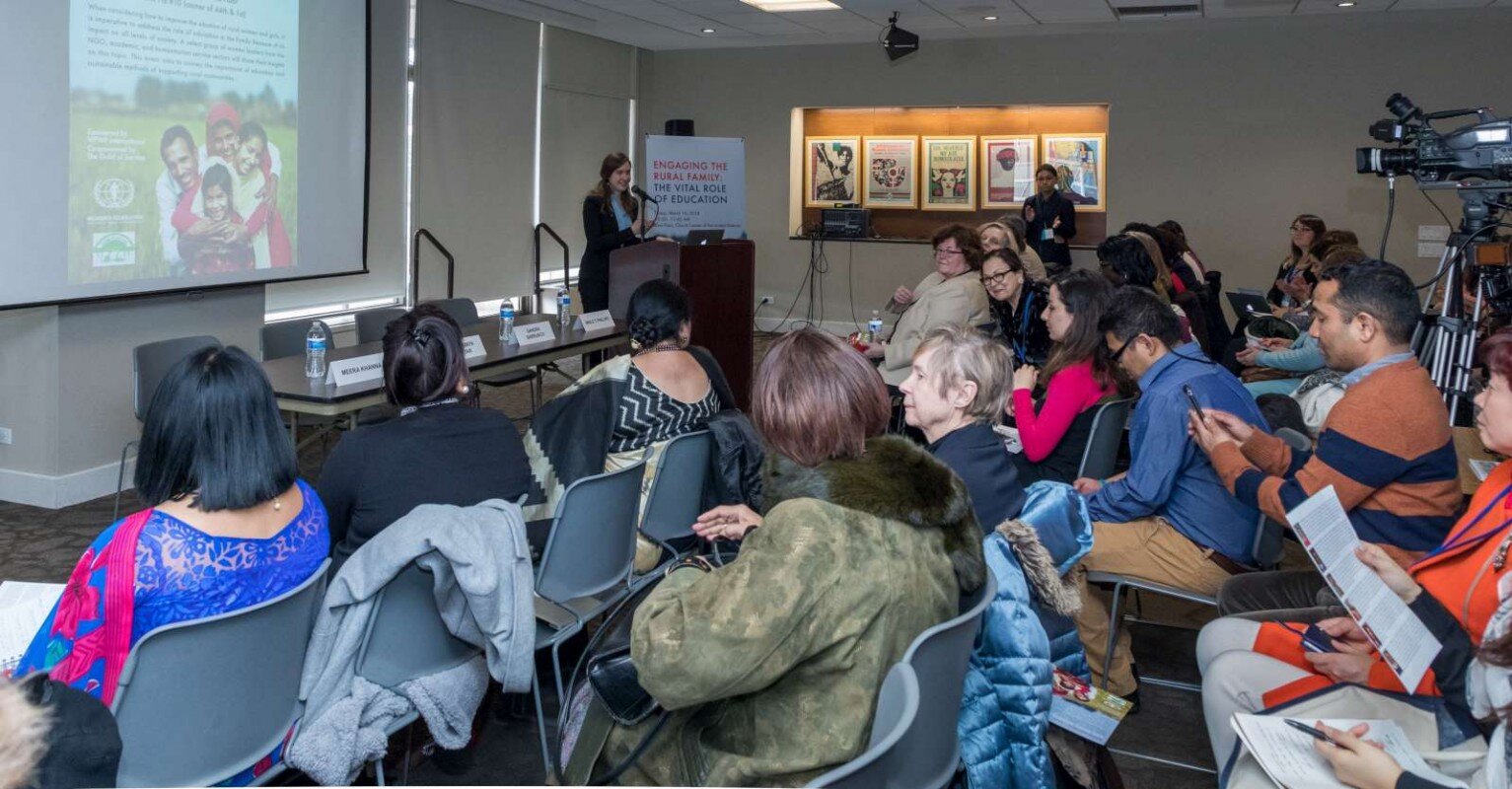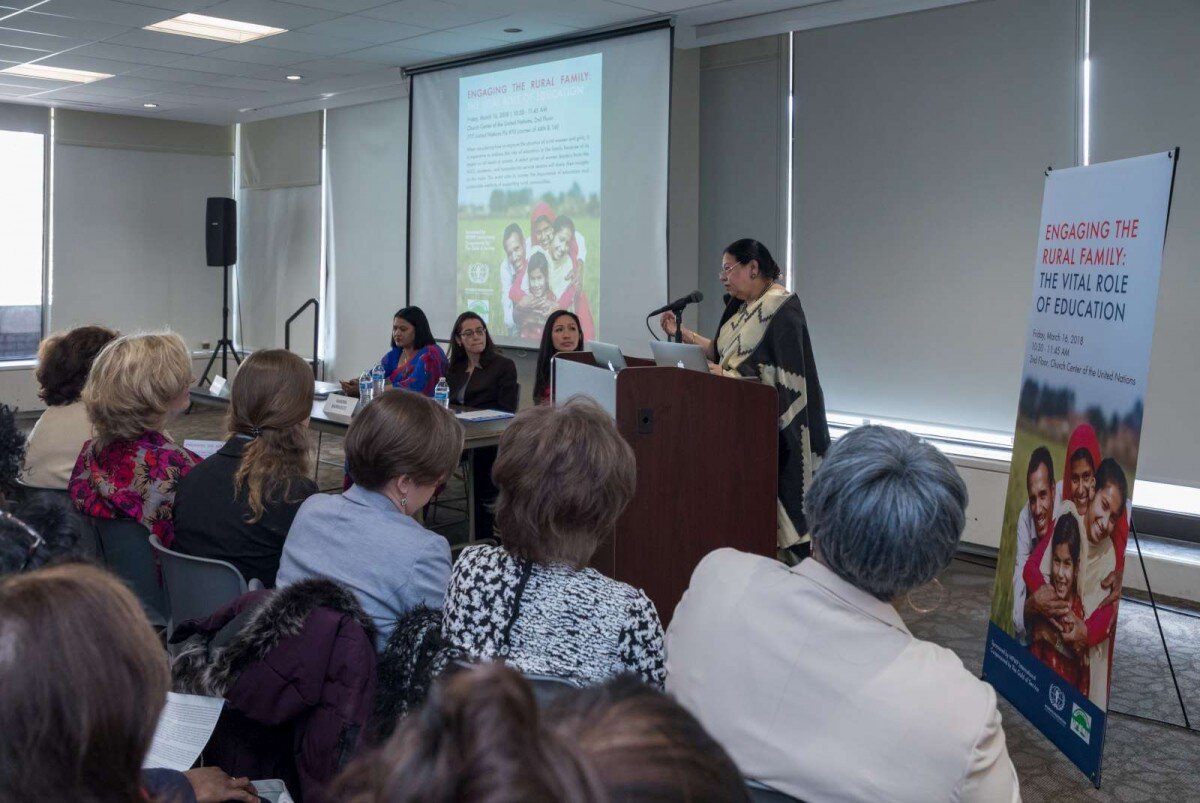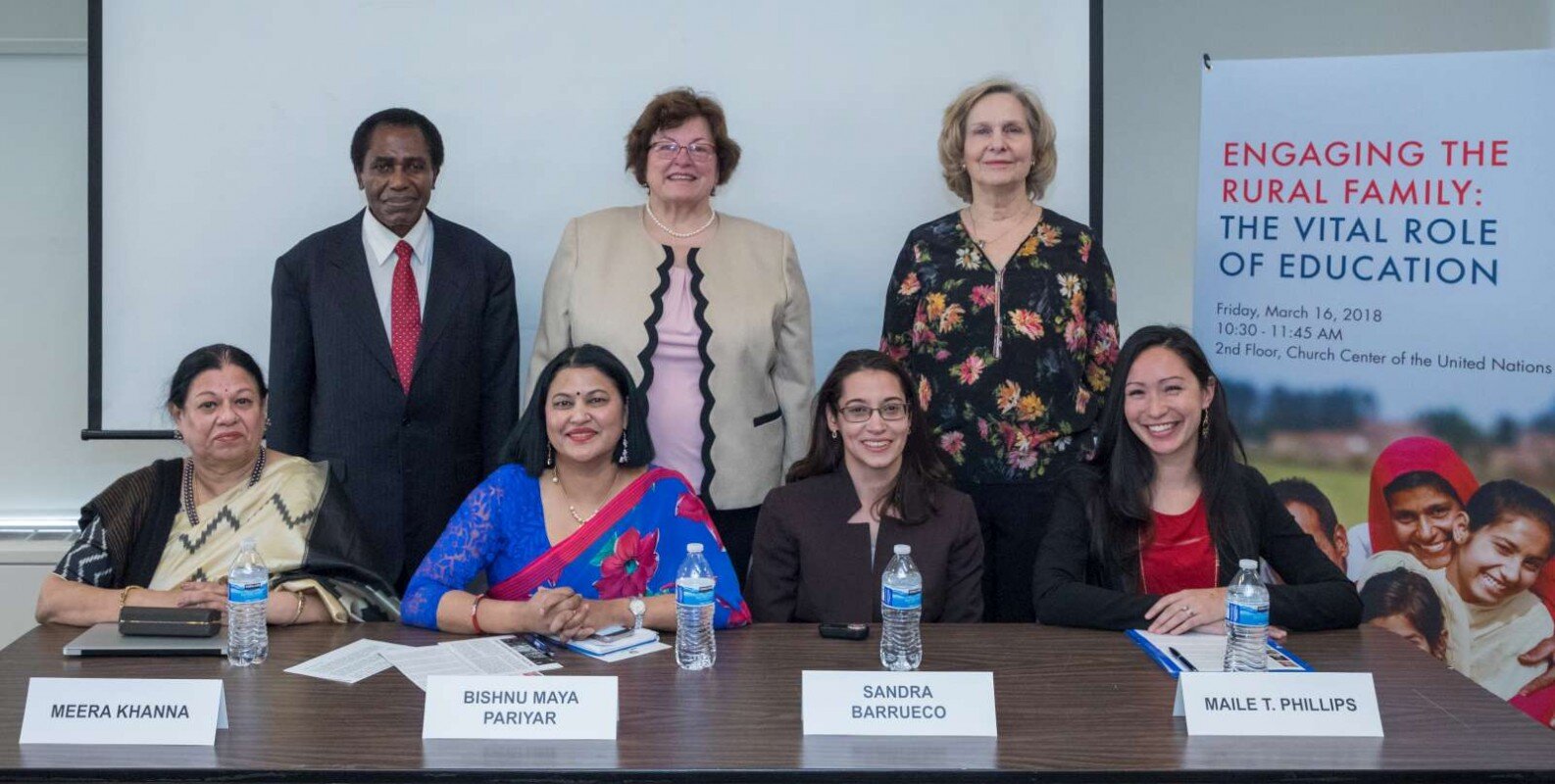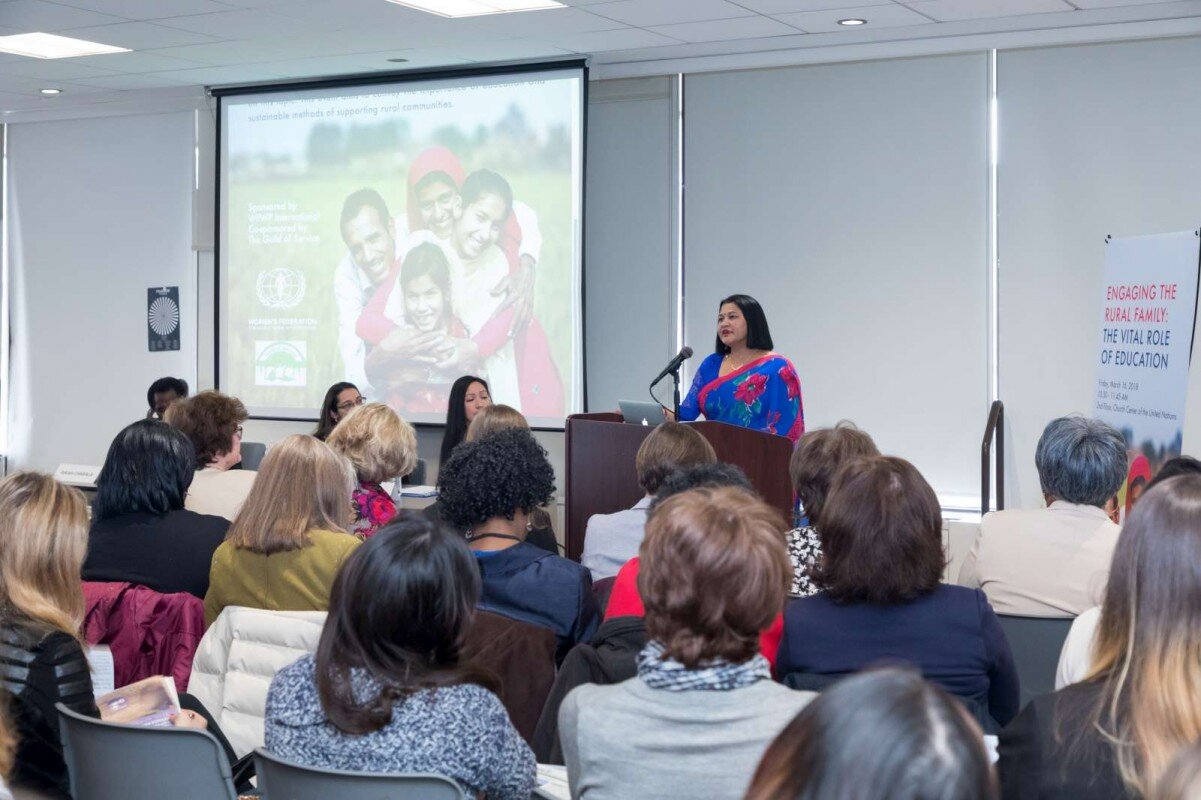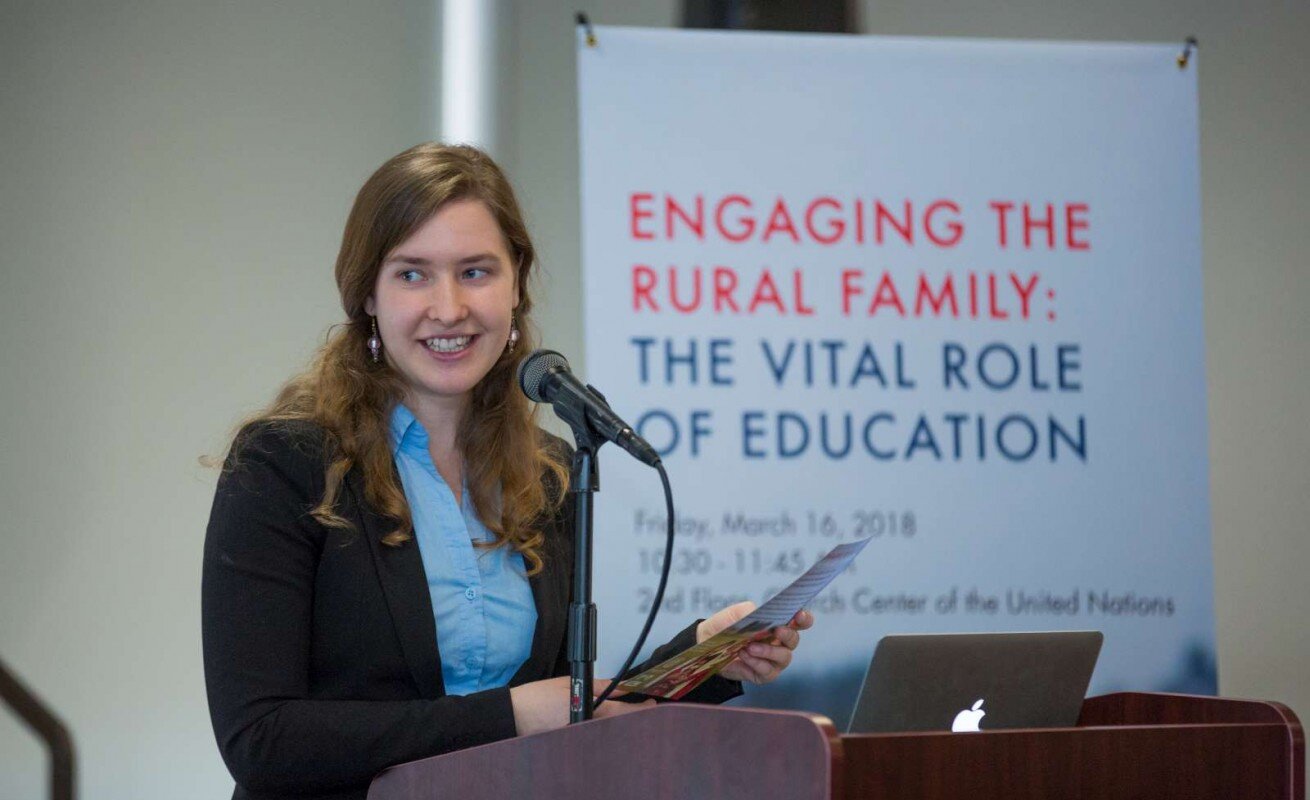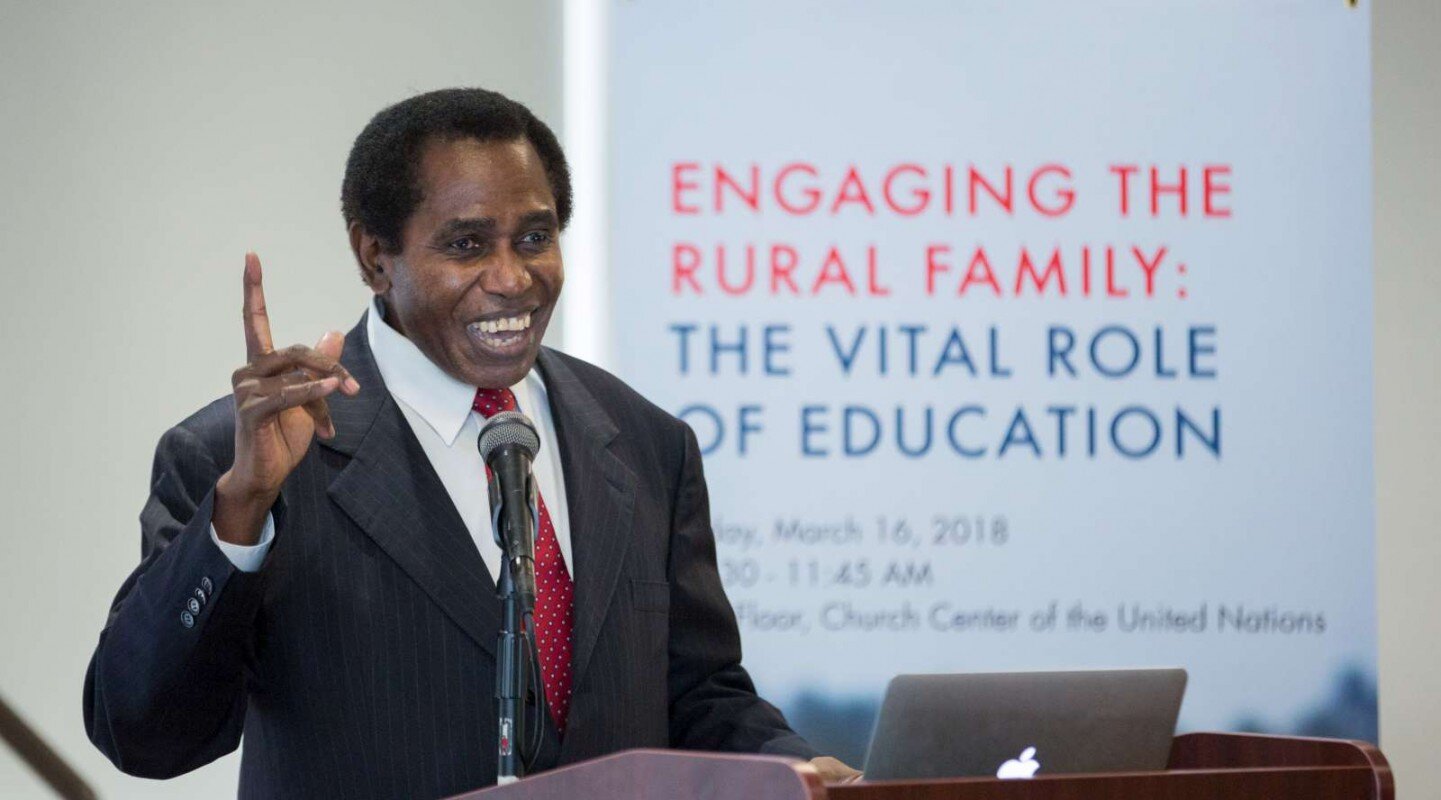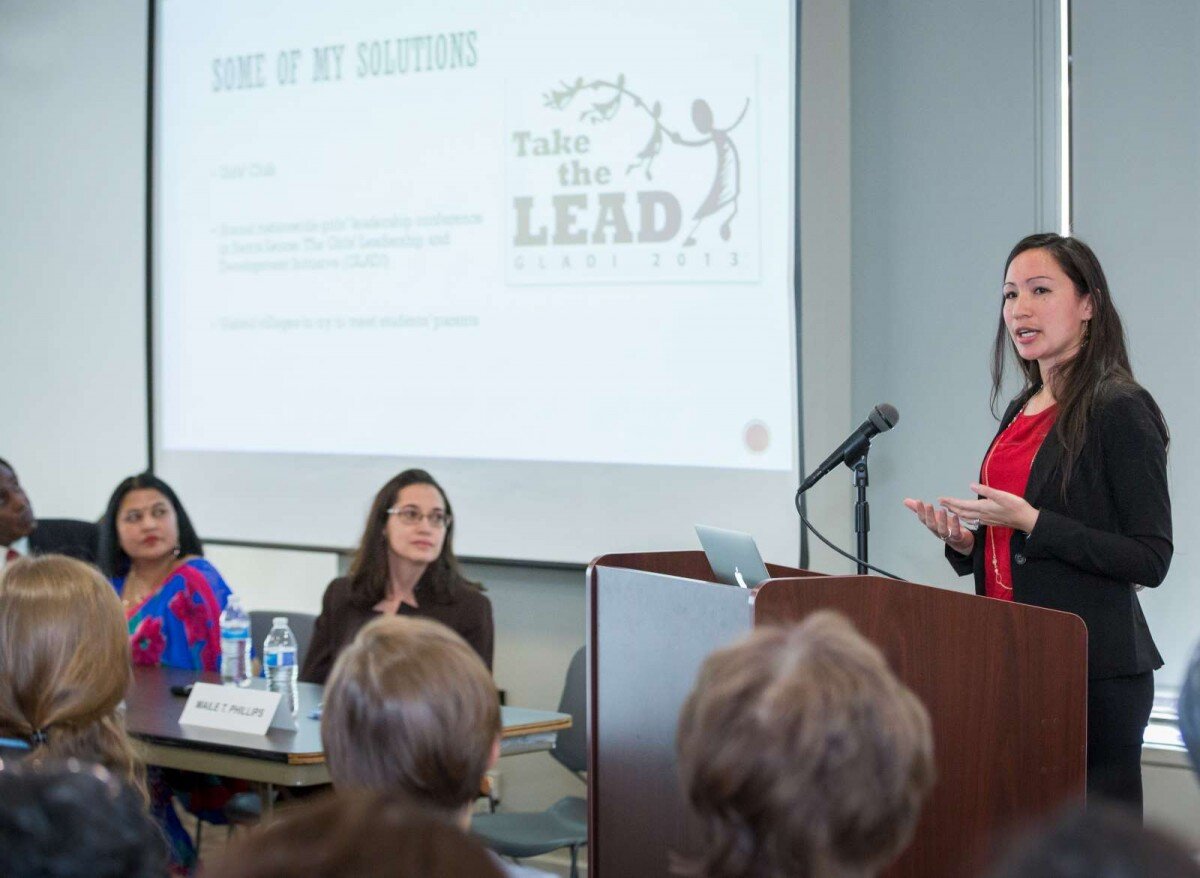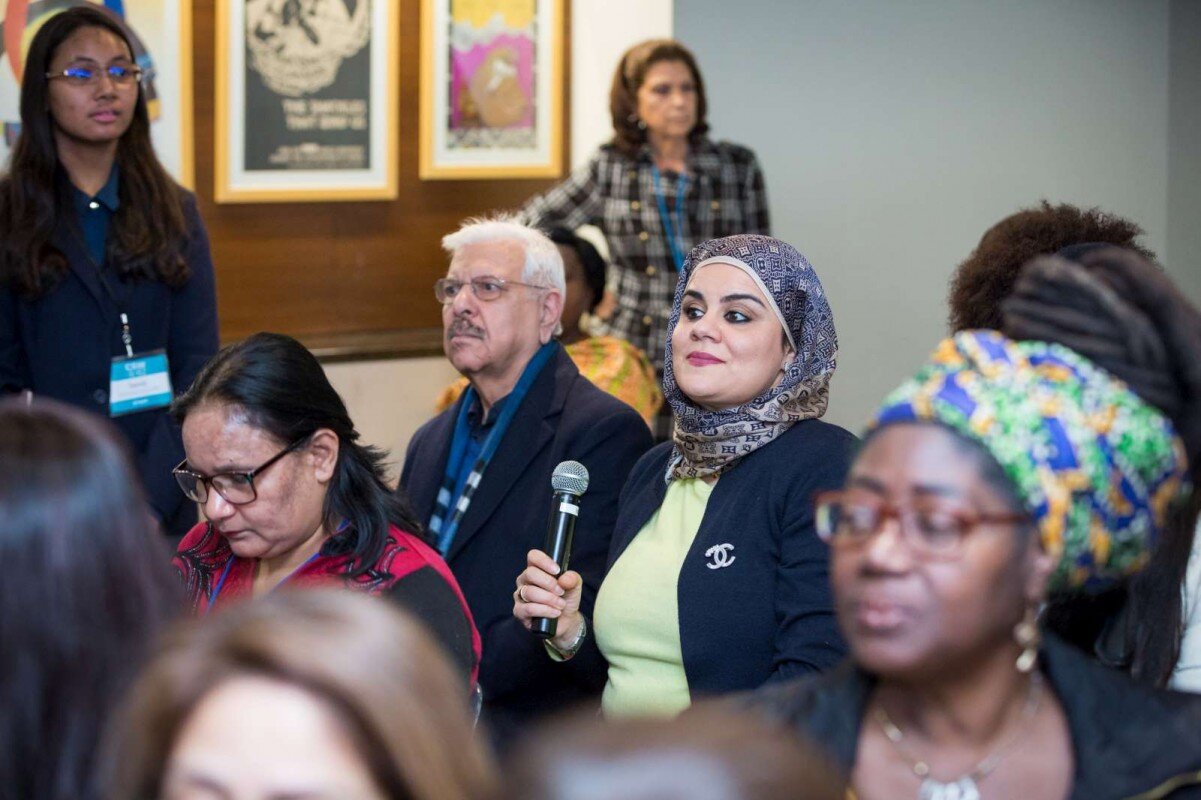SAY “NO” TO SILENCE, INACTION, AND INDIFFERENCE: WFWP INTERNATIONAL PARALLEL EVENT AT CSW 62
As part of my experience during the 62nd Commission on the Status of Women, I had the privilege of attending the Town Hall Meeting with the Secretary General of the UN, António Guterres. Over 500 women and a few men vied for a seat in the ECOSOC Chamber to hear from the Secretary General as well as pose some questions and comments. Having never attended such a meeting, I wasn’t sure what to expect. It was quite amazing to experience this forum where all these women of different ages, nations, cultural backgrounds, and religions could voice opinions and questions to the high ranking leaders of the UN on topics they feel are of utmost importance for the status of women globally.
However, one thing struck me about some of the questions. Many felt quite accusatory, as if they were saying, “What are you going to do about this or that situation in my country?!” While there are many sad and seemingly never-ending situations around the globe every day, I believe it’s difficult to move forward if our focus is on pointing out what’s wrong and demanding what needs to change.
Thus, it was a breath of fresh air to attend the WFWP International Parallel Event on “Engaging the Rural Family: The Vital Role of Education” at the Church Center of the United Nations on March 16. While each of the diverse speakers outlined some of the issues they are trying to address, they all focused primarily on the opportunities for change rather than the impossibilities of the world’s reality. Each of them also highlighted work in their own respective fields and countries, but there was a common thread throughout: Even though they may be only one person or one organization, their small actions to improve their communities and nations brings hope to many that a better world is possible.
Ambassador Isaiah Chabala, former Ambassador for Zambia to the United Nations, explained this hope for change so well. He said that we need to start from the belief that we are all one and that each of us is endowed with sufficient gifts to make this a better world. We may feel like I am just one person, but we should focus on the opportunities and start by saying “no” to silence, inaction, and indifference.
Ms. Meera Khanna, Executive Vice President of the Guild of Service, explained about her work in India, a country of many contradictions between wealth and poverty and where one sixth of the world’s population lives. There’s a colloquial saying that “having a girl is like watering the neighbor’s lawn.” Where Ms. Khanna was faced with high dropout rates among young girls and families which do not value girls’ education in her work, she had to think outside the box. Young rural girls who often have to miss school to take care of younger siblings, for example, were encouraged to bring their siblings along to school.
Dr. Bishnu Maya Pariyar, founding President of the Association of Dalit Women Advancement of Nepal, gave her own story of facing the oppressive caste system in Nepal. In the caste system, everyone is born with a certain social rank, with the Dalits considered to be the lowest of the low. Dr. Pariyar faced that discrimination as well since she also belonged to the Dalit caste. While attending school, she was estranged by the higher caste children and even the teachers. She and the other Dalit children had to sit on the floor and could not drink from the same fountain as the others. However, rather than becoming overwhelmed by her harsh reality, she decided to turn the suffering into love. She got out of poverty and now helps thousands of Dalit women to do the same.
Dr. Sandra Barrueco, Associate Professor of Psychology at The Catholic University, outlined her research on education programs for seasonal and migrant farm workers and their families. These are the families who travel around the United States to harvest the fruits and vegetables that end up in our grocery stores. This puts incredible stress on the families and makes it difficult for children, most of whom speak Spanish, to get a good education. One of the programs Dr. Barrueco talked about was an ESL (English as a Second Language) class for the women. At first the women were not engaging in the classes. After some investigation, it was discovered that it’s too much for them to be away from their families all day for work then again at night for an ESL class. Once classes were adjusted to be family friendly and women felt welcomed to bring their children, many more could benefit. This was just one story of using ingenuity to see past the barriers.
Finally, Ms. Maile Phillips gave an amazing story about her time in Sierra Leone during her time in the Peace Corps. During that time, she lived in a rural village with no electricity or running water and taught math in the local school. She noticed that while at the beginning of the school year she had an equal number of girls and boys in her class, gradually many of her girl students stopped showing up. Upon inquiry she was told to leave it alone and that the girls were probably gone because they got married, and that’s the way things are around there. However, Ms. Phillips refused to sit idle. She tracked down her missing students and spoke to their families, encouraging them to allow their daughters to attend school. That personal touch made a big difference. Ms. Phillips also started a Girls’ Club to give the girls an opportunity to engage and participate more at school.
It’s undeniable that many things need to change in order for us to have the peaceful world we all hope for. However, rather than focusing so much what’s wrong, let’s instead think about what is possible. The speakers at the WFWPI Parallel Event outlined just a few things that are possible when people come together with creativity to do good. If peace starts with me, then there is a lot that I could do. Rather than asking others, “what are you going to do?” I can reflect on myself, “what will I do?”







